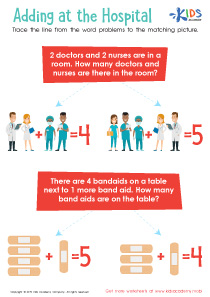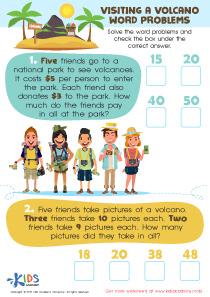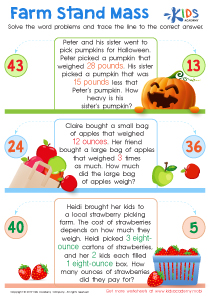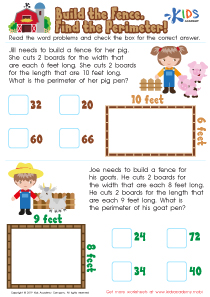Normal Money Word Problems Worksheets for Ages 5-6
1 filtered results
-
From - To
Introducing our Learning Downloadable Worksheets designed specifically for children aged 5-6 years, focusing on Normal Money Word Problems. These engaging and interactive worksheets are crafted to introduce young learners to the basic concepts of money, including identifying coins, understanding simple transactions, and beginning addition and subtraction with money. Perfect for both classroom and at-home learning, our worksheets help build a solid foundation in financial literacy through fun and practical exercises. Equip your child with the skills they need for everyday financial understanding with our carefully designed resources. Start their journey towards money mastery today!
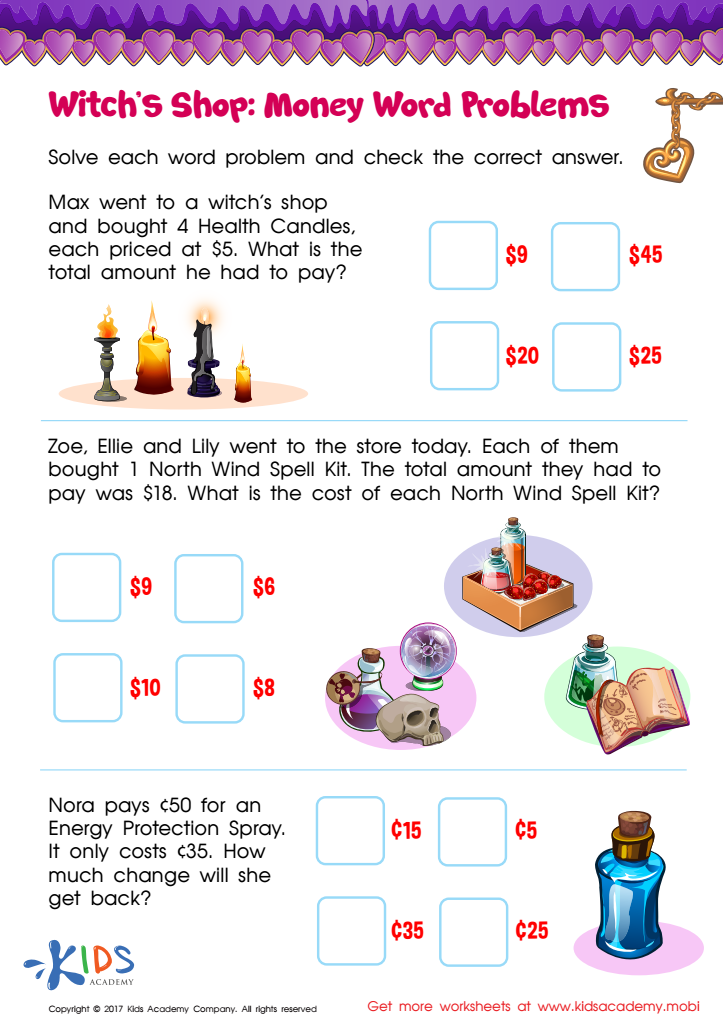

Money Word Problems Printable
The Benefits of Normal Worksheets on Money Word Problems for Young Learners
When it comes to educating young children aged 5-6 years, incorporating practical skills alongside academic learning is crucial for balanced growth and development. Particularly, understanding the concept of money and its application through word problems can be significantly beneficial. Normal worksheets on money word problems serve as excellent learning homework sheets, blending the realms of mathematics, reasoning, and real-life application seamlessly.
Firstly, using learning homework sheets focused on money word problems helps in laying a foundational understanding of basic arithmetic. At ages 5-6, children are just beginning to grasp concepts such as addition and subtraction. Money word problems tailored to their level encourage them to apply these mathematical operations in scenarios that mimic real-life situations, such as buying toys or sharing snacks. This not only reinforces their math skills but also makes learning relatable and engaging.
Moreover, these worksheets serve as a practical tool for improving problem-solving skills. Money word problems require children to read, comprehend the problem presented, and figure out the solution by applying the appropriate mathematical operation. This process enhances critical thinking and analytical skills, as children learn to break down a problem into manageable parts and solve it step by step. As they progress, the complexity of the problems can be adjusted to continue challenging them, thereby promoting continuous intellectual growth.
Incorporating money word problems into learning homework sheets also introduces young learners to the concept of money management—a vital life skill. Though basic at this level, the understanding of spending, saving, and the value of money is an educational investment that pays dividends throughout a child’s life. By dealing with problems that involve calculations with money, children learn the importance of budgeting and financial decision-making from an early age.
Furthermore, these worksheets are instrumental in enhancing cognitive development. Engaging with money word problems stimulates mental calculations and memory, as children need to remember numbers, operations, and the sequence of steps required to solve the problem. This cognitive exercise is crucial at a developmental stage where neural connections are rapidly forming and can have long-term benefits on the child’s academic and everyday cognitive abilities.
Lastly, the use of learning homework sheets including money word problems encourages a collaborative learning environment. These activities can be conducted individually or in groups, promoting not only individual learning but also cooperative learning. Group activities can teach children the skills of communication, cooperation, and negotiation, as they discuss and solve problems together. This not only helps in building social skills but also in understanding different perspectives, which is essential for developing empathy and teamwork abilities.
Parents and teachers can further enhance the effectiveness of these worksheets by incorporating discussions about money used in daily life, thereby making the connection between the worksheet problems and real-world applications even stronger. For instance, discussing grocery shopping or the cost of household items can make the exercises on the worksheets more tangible. This real-life relevance boosts understanding and retention of the concepts being taught.
Additionally, learning homework sheets with money word problems can be made more dynamic through the use of digital tools and interactive platforms alongside traditional paper-based worksheets. Incorporating apps or online games that simulate shopping experiences or money management can complement the traditional worksheets, making learning both fun and impactful.
To ensure that these worksheets are truly beneficial, it is crucial that they are well-designed to suit the cognitive level of 5-6-year-olds. The problems should be straightforward, avoiding overly complex language or concepts that could frustrate the young learners. Illustrations and clear, attractive layouts can help sustain children’s interest and focus, making the learning process enjoyable and less daunting.
In conclusion, normal worksheets on money word problems are incredibly useful tools in the educational journey of children aged 5-6. They not only foster math skills and problem-solving abilities but also introduce essential life skills such as money management and cognitive development. When used effectively as part of learning homework sheets, they can provide a robust foundation that supports both academic and personal growth, preparing young learners for the complexities of the real world in a nurturing and engaging manner.

 Assign to the classroom
Assign to the classroom





